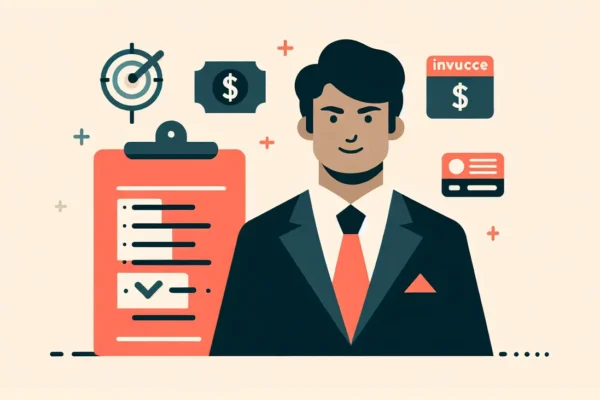In today’s fast-paced business landscape, understanding commercial finance is crucial for both small business owners and large corporations. But what exactly is commercial finance, and why is it so important? In this FAQ, we’ll break down the essentials of commercial finance and explore its significance in the business world.
What is Commercial Finance?
Commercial finance refers to a range of financial products and services designed specifically for businesses. These include loans, credit, leasing, and more, all aimed at supporting business operations and growth.
At its core, commercial finance is about more than just money; it’s about providing solutions that empower businesses to meet their strategic objectives. Whether it’s a start-up or a well-established enterprise, commercial finance offers the resources necessary to accelerate growth, enhance sustainability, and capitalize on market opportunities.
Think of commercial finance as the lifeblood of a company, circulating essential funds that keep the heart of business operations beating strongly. It’s an indispensable tool that equips companies with the ability to seize innovations, expand their market reach, and maintain a competitive edge.
Types of Commercial Finance
There are various types of commercial finance options available, such as term loans, invoice financing, equipment leasing, and revolving credit lines. Each serves different business needs and situations.
Term loans are a popular option for businesses looking to finance larger projects or acquisitions. These are fixed amounts borrowed from a lender, repaid with interest over a set period. This structure provides predictability and is ideal for projects with a clear cost horizon.
Invoice financing, on the other hand, helps businesses maintain cash flow by advancing funds based on outstanding invoices. This option is particularly popular with companies that have longer invoice payment terms and need working capital to cover daily operations.
Equipment leasing allows businesses to use essential machinery without the hefty upfront costs of purchasing. This form of finance is crucial for industries that rely heavily on cutting-edge equipment or those facing rapid technological advancements.
Revolving credit lines provide the flexibility that businesses need to cover fluctuating expenses or unforeseen costs. Unlike term loans, they allow companies to borrow as much as needed up to a defined limit, paying interest only on the drawn amount.
How Does Commercial Finance Work?
Commercial finance operates by providing businesses with the funds they need to cover operating costs, invest in new opportunities, and manage cash flow. The process involves assessing needs, choosing the right financial product, and working with lenders.
The process begins with identifying the specific financial needs of the business. This could involve analyzing cash flow gaps, projecting future expenses, or planning for capital investments. Once needs are established, the next step is to explore the commercial finance solutions available in the market.
Choosing the right lender is just as crucial as selecting the financial product. A reputable lender not only provides the necessary funds but also offers valuable expertise and support. It’s essential that businesses evaluate a lender’s track record, terms, and responsiveness to ensure a good fit.
Why Is Commercial Finance Important?
Commercial finance is crucial because it enables businesses to fund their operations, invest in growth opportunities, manage risks, and ensure continuity. Without it, many businesses would struggle to sustain themselves.
By providing the necessary capital, commercial finance allows businesses to break free from the constraints of limited resources and achieve their full potential. It supports enterprises in pursuing ambitious endeavors that drive innovation and set them apart from the competition.
In times of economic uncertainty or during the launch of new ventures, commercial finance acts as a safety net. It mitigates risks by ensuring that companies have the liquidity needed to navigate challenges and capitalize on emerging opportunities with confidence.
Moreover, commercial finance is a key enabler of economic growth. By fueling businesses of all sizes, it stimulates job creation, boosts market diversity, and catalyzes advancements that benefit the broader society.
How to Choose the Right Commercial Finance Option
Choosing the right commercial finance option involves evaluating your business needs, comparing various products, and considering factors like interest rates, repayment terms, and lender reputation.
Start by thoroughly understanding your financial objectives. Are you looking to expand operations, invest in new technology, or maintain cash flow stability? Clear goals will guide the selection process and ensure the chosen financial product aligns with your business strategy.
Take the time to research and compare interest rates and terms from various lenders. It’s essential to strike a balance between affordability and flexibility, ensuring the financial solution supports your business without creating undue financial strain.
Lender reputation is another critical consideration. Look for lenders with proven success in your industry, a history of supportive client relationships, and positive reviews. An expert lender can provide not just funds, but also valuable insights and strategic guidance.
The Importance of Commercial Finance in Business Success
Commercial finance serves as the backbone of the business world, providing essential financial support that allows companies to grow, innovate, and compete. By understanding the basics of commercial finance, entrepreneurs and business leaders can make informed decisions that drive their businesses forward.







